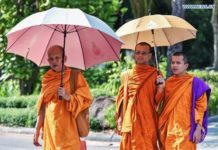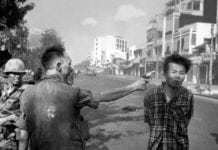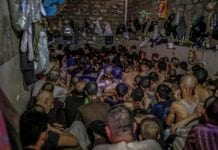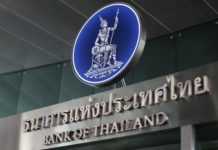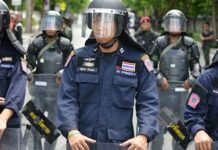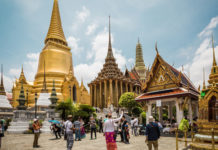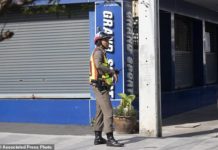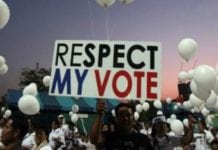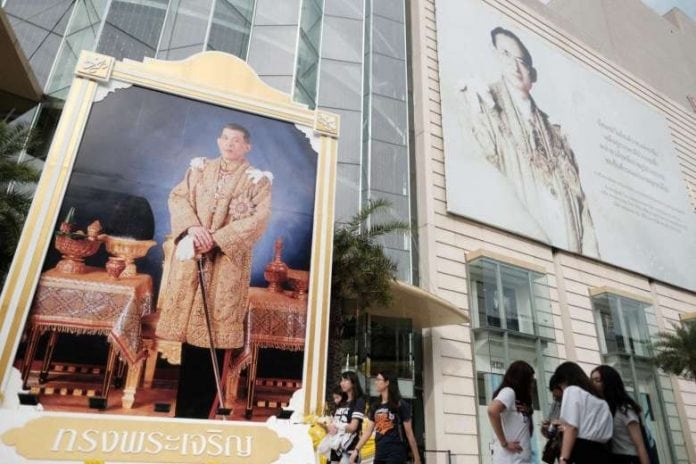
Thailand’s new Constitution – What do we know about the charter and will it solve the country’s deep-seated political rifts?
We’ve been here before, haven’t we?
Yes. Since absolute monarchy was abolished in 1932, Thailand’s Constitution has been rewritten 20 times – usually following coups or after protests ousted the military and their backers.
Yet, the rewrites have done little to end the kingdom’s long history of fractious politics. Critics say they have failed to build in bipartisan checks on power or create an independent judiciary.
Previous charters have seesawed between granting greater suffrage and power to elected lawmakers – as in the case of the 1997 so-called “People’s Constitution” – or taking a restrictive turn, with unelected bodies keeping democratic forces in check.
This revision fits into the latter category.
Thailand’s military has a long track record of coups – 12 successful ones so far – and the generals retain a deep distrust of democracy.
Since his 2014 takeover, junta chief Prayut Chan-O-Cha has banned political gatherings and rounded up critics.
Constitution is no big deal in Thailand
To be fair, a new constitution isn’t as big a deal in Thailand as it might be for some people. The American constitution, for example, dates to 1789 and the last minor amendment was in 1991.
And research, which is not something I usually bother with, reminds me that it was about something minor, like civil servant salaries.
The British constitution is older than that and can be traced to the Magna Carta in 1215 and the Act of Settlement of 1701.
By contrast, Thailand has had twenty new constitutions since 1932. That’s one every four years, roughly the term of an elected Government.
So it is not such a crisis to the Thai’s and that might also explain the low turnout the last time.
‘Who cares, the tourists will come again tomorrow.’
So what did the Thais do to themselves by voting Yes?
Under the new constitution, if a party that comes to power has its own ideas that do not quite satisfy the military-bureaucratic, yellow-shirt establishment, it will now be easy to pull the mat from under both the prime minister and the entire Cabinet.
Parliament will comprise 750 people – 250 Senators in the upper house, who will be essentially appointed by the military, and 500 elected MPs in the lower house.
Of the 250 Senate seats, six are reserved for top commanders of the armed forces and the permanent secretary of the ministry of defence.
Electing a prime minister would need a majority of 376 votes out of 750. That means if the Senate of self-appointed, unelected, Senators vote together, and it is fair to assume they will, then a person can become prime minister with those 250 Senate votes and just 126 out of 500 elected MPs.
In other words appointed and not elected.
Unless a party or coalition of parties can form an unassailable majority, it may not even be able to elect a prime minister of its choice. Given that Thai MP’s never trust and refuse to agree with each other then this is quite likely in the future.
Any prime minister will only function at the pleasure of the military-bureaucratic elites. And the Constitutional Court, in particular, can intervene in undefined ‘crisis’ situations to decide political directions.
It is like the military’s own political party controlling the legislature without having to contest for people’s support.
What role does the king play?
On paper the country’s constitutional monarchy is granted limited formal powers.
But the monarchy has amassed vast wealth and wields significant political clout behind the scenes. Criticism of its key figures is illegal and results in long jail terms.
After the death of his father King Bhumibol Adulyadej in October 2016, 64-year-old Maha Vajiralongkorn surprised many by ordering the junta to rewrite parts of the constitution that dealt with his role.
The articles in question detail how the government should proceed in a political crisis. Also the procedure for appointing a regent in the king’s absence. And whether royal edicts should be countersigned by a government minister.
Analysts will be watching closely to see if the rewrites strengthen the king’s hand. Although few expect those inside the kingdom to openly criticise the changes.
Will it solve Thailand’s political problems?
That’s the big unanswerable question.
The military says the new constitution purges Thailand of corrupt civilian politicians and restore stability. Nearly a decade of political turmoil that has hampered economic growth.
The generals say the charter has popular support because 61 percent of voters approved it in a referendum last year. Although campaigning against the document was banned.
Critics say the charter will simply augment military power and straitjacket elected officials. In fact it paved the way for continued military control and corruption.
It remains unclear how much freedom an elected government will have with military appointees controlling their every move.
But few Thais expect this charter to be their last – the chances are the first job of any newly elected government is likely to be, RE-WRITE THE CHARTER.
–
You can follow BangkokJack on Minds & Twitter. Or join the free mailing list (top right)
Please help us continue to bring the REAL NEWS – PayPal

